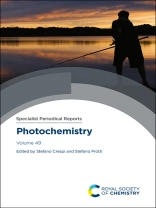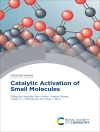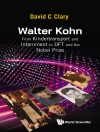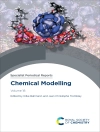Providing critical analysis of emerging and well-established topics, this book is essential reading for anyone wanting to keep up to date with the literature on photochemistry and its applications. Volume 49 combines reviews on the latest advances in photochemical research with specific highlights in the field. The first section includes periodical reports of the recent literature on physical and inorganic aspects, including reviews of the molecules employed as dyes in art, light induced reactions in cryogenic matrices, photobiological systems studied by time-resolved infrared spectroscopy and photophysics, and photochemistry of transition metal complexes. This selection is completed by reviews of the literature on solar photocatalysis for water decontamination and disinfection and for water splitting/hydrogen production. Coverage continues in the second part with highlighted topics, from the use of aromatic carbonyls as photocatalysts and photoinitiators in synthesis, photoinduced and photocatalysed decarboxylation reactions, development of dye-sensitized solar cells, design of luminescent water-soluble systems, and applications of plasmonic nanoparticles. This volume also includes a third section entitled ‘SPR Lectures on Photochemistry’, where leading scientists in photochemistry provide examples to introduce a photochemical topic to academic readers, offering precious assistance to students in this field.
Jadual kandungan
Introduction of the Year 2020;
The Great Schism in Photochemistry;
The Molecules of Colour. The Real Blue Indigo: Photostability Mechanisms, New Functional Derivatives, and Hybrids;
Light Induced Reactions in Cryogenic Matrices (2019–2020);
Photobiological Systems Studied by Time-resolved Infrared Spectroscopy (2019–2020);
Photophysics of Transition Metal Complexes (2019–2020);
Recent Advances in Photocatalytic Water Splitting and Hydrogen Generation (2019–2020);
Solar Photocatalysis for Water Decontamination and Disinfection (2017–2020);
C–C and C–Heteroatom Bonds Photocatalyzed and Photoinitiated by Carbonyls;
New and Unconventional Trends in Dye-sensitized Solar Cells: Materials, Devices and attempts towards Market Entry;
Excited-state Symmetry Breaking: from Fundamental Photophysics to Asymmetrical Photochemistry;
Recent Applications of Photoinduced Decarboxylative Radical Reactions Catalyzed by Photoredox Catalysts;
Selected Applications of Plasmonic Nanoparticles in Photosciences;
Enhancing Photosynthesis in Organic Biological Hybrid Complexes;
Porphyrins as Photocatalysts in Organic Photoredox Transformations;
The Arene–alkene Photocycloaddition
Mengenai Pengarang
Stefano Protti obtained the Master’s degree in 2003 (110/110 cum laude). In 2007, he completed his Ph D in Pavia focusing on photochemical arylations via phenyl cations. Later he moved to LASIR Laboratory (Lille, France), where he investigated the photoreactivity and the photophysics of flavonoids. He came back to Pavia and started working in the field of (photo)green synthetic chemistry. After a postdoctoral stay at the i Bit Tec-S laboratory (CEA Saclay, France) carrying out studies on photocatalyzed oxidation reactions for energy storage, he moved again to Pavia. Since 2018 is Associate Professor at the University of Pavia, Italy. He is currently editor of the Specialist Periodical Reports in Photochemistry of the Royal Society of Chemistry, member of the Early Career Board of the ACS Sustainable Chemistry and Engineering and of the International Advisory Board of the European Journal of Organic Chemistry. The research activity of Stefano Protti has been mainly focused on the development of new synthetic methods for the light driven formation of C-C and C-heteroatom bonds under metal free conditions.












